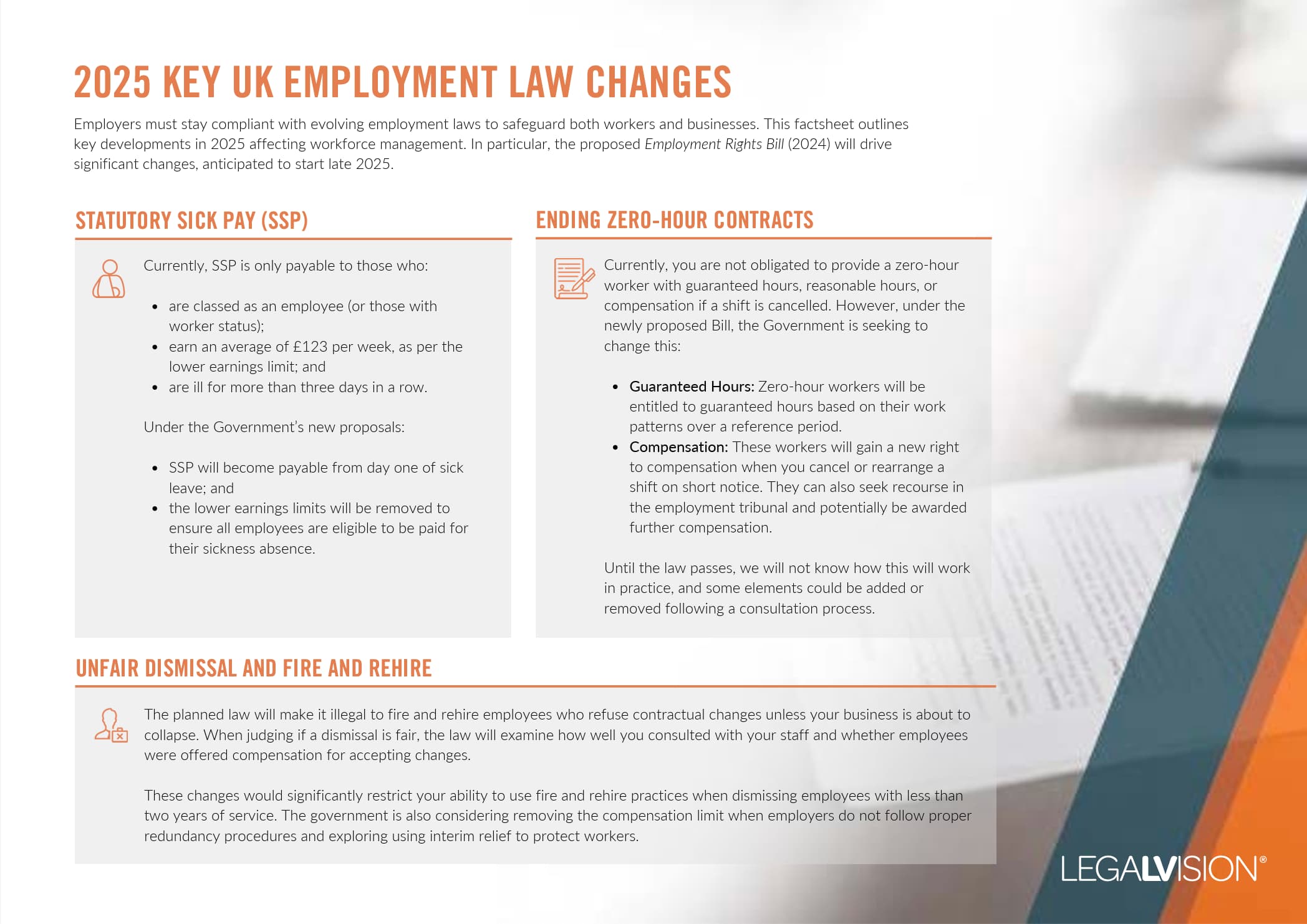When you begin employing staff at your business, the amount you pay them depends on their minimum entitlements, the average pay rate for their job and any negotiations between you and your employees. However, your employees may expect pay increases as they continue working for you, such as annual pay rises. There are laws regarding employee entitlements that you must understand and abide by. This article explains some of the considerations you should consider when deciding whether to raise your employee’s pay.
Is There a Pay Rise Law in the UK?
There is no law specifically about pay rises in the UK, despite your employees likely thinking they are due a pay rise annually. However, if you promise your employees specific pay raises or pay rise dates in their employment contracts, you create a contractual obligation that you legally must comply with.
Although there is no statutory obligation to do so, it is still good practice to provide pay raises for long-term employees.

This factsheet outlines key developments in 2025 affecting workforce management.
Why Should I Give My Employees a Pay Rise?
By offering a pay rise, it is likely your employees will:
- feel valued and work harder;
- feel more motivated, so carry out their jobs well; and
- stay with your business for longer.
Are There Any Laws About Recording Pay Rises?
Even though you are not legally required as an employer to give your employees a pay rise, where you do, there is a legal requirement to include this in any gender pay gap reports. This applies if you meet the legal requirements to produce these, which an employment lawyer can advise you on.
Gender pay gap reports detail the difference in what you pay men and women in your workforce. This includes their:
- salary;
- commissions;
- bonuses; and
- other work-related pay.
Whilst your gender pay gap reports may evidence a difference in pay rises for men and women, you must not refuse a pay rise based on your employee’s sex. This could be sex discrimination, which is illegal and could lead to you facing a tribunal claim.
How Much Should I Pay My Employees?
As there is no law on pay rises in the UK, there is no set amount you can pay your employees. Instead, you can base this on a variety of factors. For example, the UK’s average salary in 2022 was £32,300.
However, employment law obliges you as an employer to pay your workers no less than the national minimum wage (NMW) where they qualify. Workers who do not qualify include, for example, those under 16 and voluntary workers. If you fail to pay workers who qualify for the NMW, you could receive a fine of up to £20,000 per employee. Also, when your workers are 21 or over, you must pay them the National Living Wage (NLW). Rates for the NMW and NLW change on 1 April each year. The rate per hour is currently as follows:
- £6.40 for apprentices who are aged under 19 or over 19 but in their first year of apprenticeship;
- £6.40 for those who are aged 16 and 17;
- £8.60 for those who are aged 18, 19 and 20; and
- £11.44 for those 21 years old and over.
Key Takeaways
However, no law says you must give your staff a pay raise, although you may wish to do so for various reasons, such as retaining staff. If you detail that you will give pay raises in your staff’s employment contracts, you have a legal duty to honour this. However, the law does say that you must record pay rises in your gender pay gap reports if you are required to produce these. While you may decide how much to pay your employees, there are some rules you must follow when deciding. For example, you must ensure that their pay rates meet the National Minimum Wage (NMW) and the National Living Wage (NLW) where applicable.
If you need help understanding pay rules in the UK, our experienced employment lawyers can assist as part of our LegalVision membership. For a low monthly fee, you will have unlimited access to lawyers to answer your questions and draft and review your documents. So call us today on 0808 196 8584 or visit our membership page.
Frequently Asked Questions
There is no law in the UK that says you must give your employees a pay rise, but it is still best practice to do so.
If your employment contracts detail that you will give your employees a pay rise, this creates a contractual obligation. As such, you must do so.
We appreciate your feedback – your submission has been successfully received.











